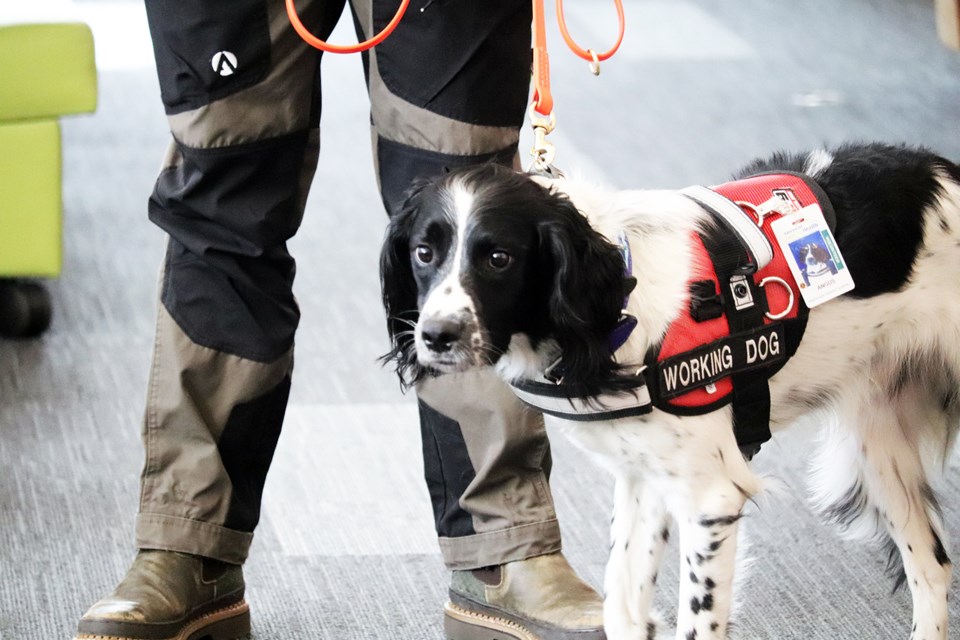Dogs can sniff more than just bombs and drugs as shown by one pup that was at University Hospital of Northern British Columbia (UHNBC) today (May 8).
Angus is a four-year-old (soon to be five) English springer spaniel and has been trained to detect the superbug Clostridium Difficile (CDI or C. diff).
C. diff is a superbug that attacks those whose immune systems have been weakened by antibiotics.
The bacteria will cause mild to severe diarrhea and other intestinal conditions such as inflammation of the colon.
Angus is owned by Teresa and Markus Zurberg of Maple Ridge.
He was purchased from a breeder in the United States specifically for his scent capabilities.
"They're trained the same way as bomb dogs and drug dogs," Zurberg says. "Bomb dogs don't care about bombs, drug dogs don't care about drugs and Angus doesn't care about C. diff."
Everyone, meet Angus. He’s a K9 that sniffs out C. diff in hospitals. It’s their first time here at UHNBC I’m northern BC. C. diff is a life threatening gastrointestinal infection #pgmatters #K9 #dog #UHNBC #cityofpg @PGMatters #hospital pic.twitter.com/NiJGkU1rPd
— Jess Fedigan (@jj_fedigan) May 8, 2019
His most recent stop was in Ottawa but has been to other health authorities such as Fraser Health, Vancouver Health, Providence Health, Interior Health and here in Prince George.
He helps a hospital see if they're meeting the standards.
He doesn't do the job alone as the team includes housekeeping staff, infection control practitioners and lab technicians.
Angus doesn't go into patient rooms without permission given and the room is accompanied by a staff member.
He mainly looks at common areas where C. difficile could be present after coming from a patients room.
He also does not search surgical suites, food preparation areas, neonatal units, psychiatric units, palliative care or offices outside of a patient unit.
It isn't just because Zurberg loves dogs that she became part of the C. difficile canine scent detection program.
In 2013, Teresa contracted C. diff after a wound on her leg which turned into septic. She had to go every day for IV antibiotics therapy.
"Through that, it killed off all of the good flora in my gut," she says. "The bad flora took over my gut and I ended up with C. diff. I was in the hospital for a week and I lost about 20 pounds in that week. So it was just devastating. I was considered young and healthy and I cannot imagine being elderly and having C. diff. To this day I still have ongoing side effects from having C. diff."
Not every dog is capable of doing a job such as this one, having to go through intense training.
"He has to be able to tell me I'm wrong and tell me where the odor is," Zurberg says. "So if I'm thinking with my human brain, he has to be able to say 'no Teresa, you're wrong. It's not where you think it is' and then we start with association."
There's also another canine friend in the C. difficile canine scent detection program at Vancouver Coastal Health named Dodger.
Currently, VCH is the only healthcare organization in the world that has a fully operational program of this nature.



